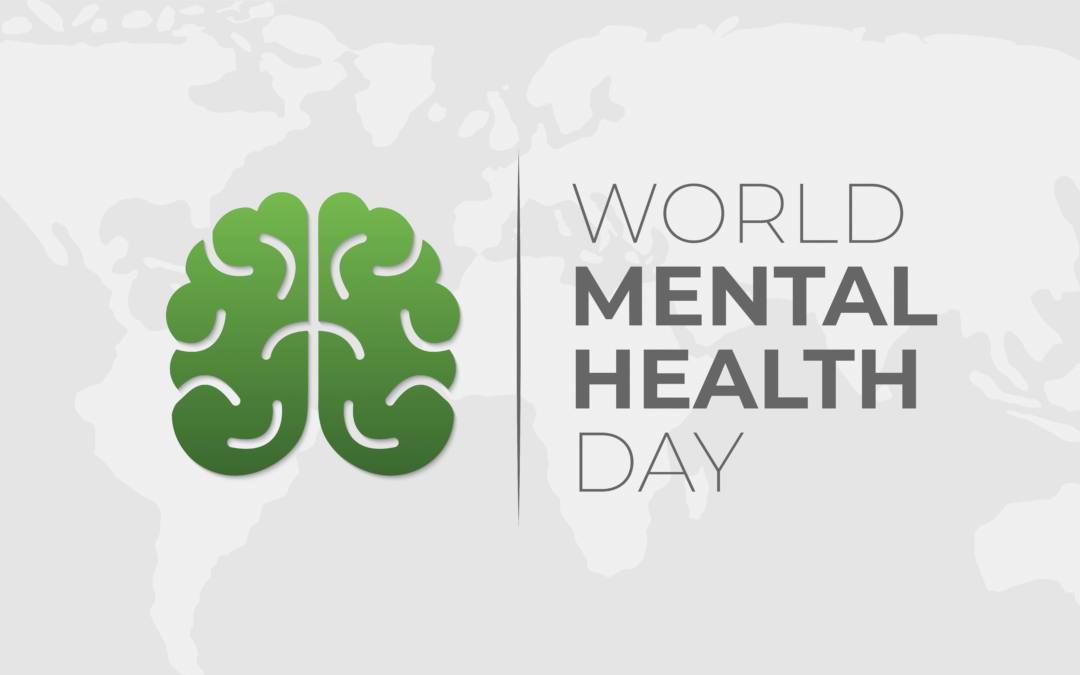World Mental Health Day, observed annually on October 10th, serves as a global platform to raise awareness about mental health issues and mobilize efforts to support mental well-being. The World Federation for Mental Health (WFMH) has designated the theme for 2024 as “Mental Health at Work,” highlighting the critical importance of addressing mental health in workplace settings.
The Significance of World Mental Health Day
World Mental Health Day plays a crucial role in destigmatizing mental health issues and promoting open dialogue about mental well-being. It provides an opportunity for individuals, organizations, and policymakers to reflect on the current state of mental health and work towards creating supportive environments that foster positive mental health outcomes (Saxena et al., 2018).
The annual observance serves multiple purposes:
1. Raising awareness about mental health issues
2. Educating the public about mental health prevention and treatment
3. Advocating for better mental health policies and resources
4. Promoting social inclusion and reducing stigma associated with mental health conditions
The 2024 Theme: Mental Health at Work
The focus on mental health in the workplace for 2024 is particularly timely, given the significant impact of work-related factors on mental well-being. The workplace is where many adults spend a substantial portion of their waking hours, making it a critical environment for mental health promotion and intervention (LaMontagne et al., 2014).
The State of Mental Health in the Workplace
Recent studies have highlighted the prevalence and impact of mental health issues in work settings:
– A meta-analysis by Modini et al. (2016) found that job strain was associated with a 1.77-fold increased risk of depression.
– Harvey et al. (2017) reported that approximately 15% of working adults experience a mental health problem at any given time.
– According to a study by Chisholm et al. (2016), depression and anxiety disorders cost the global economy US$ 1 trillion each year in lost productivity.
These statistics underscore the urgent need for workplace mental health initiatives and interventions.
Factors Influencing Mental Health at Work
Several workplace factors can significantly impact employee mental health:
1. Job demands and control: High job demands coupled with low job control are associated with increased risk of mental health problems (Theorell et al., 2015).
2. Work-life balance: Poor work-life balance is linked to higher levels of stress and burnout (Haar et al., 2014).
3. Workplace relationships: Positive social interactions at work can promote mental well-being, while negative relationships can contribute to stress and anxiety (Nieuwenhuijsen et al., 2010).
4. Job insecurity: Perceived job insecurity is associated with poorer mental health outcomes (Kim & von dem Knesebeck, 2016).
5. Organizational justice: Perceptions of fairness in the workplace are linked to better mental health outcomes (Ndjaboué et al., 2012).
The Impact of COVID-19 on Workplace Mental Health
The COVID-19 pandemic has significantly altered the work landscape and brought new challenges to mental health in the workplace. A systematic review by Giorgi et al. (2020) found that the pandemic has led to increased levels of stress, anxiety, and depression among workers, particularly those in frontline and essential services.
The shift to remote work has also introduced new mental health challenges, including increased isolation, difficulty in maintaining work-life boundaries, and “technostress” related to the use of digital technologies (Molino et al., 2020).
Evidence-Based Interventions for Workplace Mental Health
Research has identified several effective strategies for promoting mental health in the workplace:
1. Mental Health Literacy Programs: Increasing knowledge about mental health can reduce stigma and promote help-seeking behaviors. A meta-analysis by Hanisch et al. (2016) found that workplace mental health literacy interventions had small to medium effects on improving knowledge and reducing stigma.
2. Stress Management Interventions: A systematic review by Bhui et al. (2012) found that individual-focused stress management interventions, such as cognitive-behavioral therapy and relaxation techniques, were effective in reducing work-related stress.
3. Organizational-Level Interventions: LaMontagne et al. (2014) reported that organizational-level interventions, such as job redesign and increased employee participation in decision-making, can have positive effects on mental health outcomes.
4. Employee Assistance Programs (EAPs): A meta-analysis by Joseph et al. (2017) found that EAPs were effective in improving work-related outcomes and mental health symptoms.
5. Workplace Physical Activity Programs: A systematic review by Chu et al. (2014) found that workplace physical activity interventions had small but positive effects on mental health outcomes.
The Role of Leadership in Workplace Mental Health
Leadership plays a crucial role in creating a mentally healthy workplace. A study by Kelloway et al. (2012) found that transformational leadership was positively associated with employee psychological well-being. Leaders can promote mental health by:
1. Modeling healthy behaviors and work-life balance
2. Creating a supportive and inclusive work environment
3. Implementing policies that support mental health
4. Encouraging open communication about mental health issues
Economic Benefits of Workplace Mental Health Initiatives
Investing in workplace mental health not only benefits employees but also has significant economic advantages for organizations. A systematic review by Hamberg-van Reenen et al. (2012) found that workplace mental health interventions can be cost-effective, with potential returns on investment ranging from 0.51 to 2.00 for every dollar spent.
Chisholm et al. (2016) estimated that for every US$ 1 invested in scaled-up treatment for common mental disorders, there is a return of US$ 4 in improved health and productivity.
Challenges and Future Directions
Despite the growing recognition of the importance of workplace mental health, several challenges remain:
1. Stigma: Mental health stigma continues to be a significant barrier to help-seeking and implementation of mental health initiatives in the workplace (Hanisch et al., 2016).
2. Limited resources: Many organizations, particularly small and medium-sized enterprises, may lack the resources to implement comprehensive mental health programs (Martin et al., 2009).
3. Evaluation and measurement: There is a need for more robust methods to evaluate the effectiveness of workplace mental health interventions (LaMontagne et al., 2014).
4. Integration with physical health initiatives: Future efforts should focus on integrating mental health promotion with existing workplace health and wellness programs (Goetzel et al., 2018).
Conclusion
World Mental Health Day 2024, with its focus on “Mental Health at Work,” provides a timely opportunity to address the critical issue of workplace mental health. The growing body of evidence highlights both the need for and the potential benefits of workplace mental health initiatives. By implementing evidence-based interventions, fostering supportive work environments, and prioritizing mental health as a key component of overall employee well-being, organizations can contribute to improved mental health outcomes and reap significant economic benefits.
As we observe World Mental Health Day 2024, it is crucial for all stakeholders – employers, employees, policymakers, and mental health professionals – to work collaboratively towards creating mentally healthy workplaces. By doing so, we can not only improve individual well-being but also contribute to more productive, resilient, and sustainable organizations and societies.
References
Bhui, K. S., Dinos, S., Stansfeld, S. A., & White, P. D. (2012). A synthesis of the evidence for managing stress at work: A review of the reviews reporting on anxiety, depression, and absenteeism. Journal of Environmental and Public Health, 2012, 515874. https://doi.org/10.1155/2012/515874
Chisholm, D., Sweeny, K., Sheehan, P., Rasmussen, B., Smit, F., Cuijpers, P., & Saxena, S. (2016). Scaling-up treatment of depression and anxiety: A global return on investment analysis. The Lancet Psychiatry, 3(5), 415-424. https://doi.org/10.1016/S2215-0366(16)30024-4
Chu, A. H., Koh, D., Moy, F. M., & Müller-Riemenschneider, F. (2014). Do workplace physical activity interventions improve mental health outcomes? Occupational Medicine, 64(4), 235-245. https://doi.org/10.1093/occmed/kqu045
Giorgi, G., Lecca, L. I., Alessio, F., Finstad, G. L., Bondanini, G., Lulli, L. G., Arcangeli, G., & Mucci, N. (2020). COVID-19-related mental health effects in the workplace: A narrative review. International Journal of Environmental Research and Public Health, 17(21), 7857. https://doi.org/10.3390/ijerph17217857
Goetzel, R. Z., Roemer, E. C., Holingue, C., Fallin, M. D., McCleary, K., Eaton, W., Agnew, J., Azocar, F., Ballard, D., Bartlett, J., Braga, M., Conway, H., Crighton, K. A., Frank, R., Jinnett, K., Keller-Greene, D., Rauch, S. M., Safeer, R., Saporito, D., … Mattingly, C. R. (2018). Mental health in the workplace: A call to action proceedings from the Mental Health in the Workplace: Public Health Summit. Journal of Occupational and Environmental Medicine, 60(4), 322-330. https://doi.org/10.1097/JOM.0000000000001271
Haar, J. M., Russo, M., Suñe, A., & Ollier-Malaterre, A. (2014). Outcomes of work–life balance on job satisfaction, life satisfaction and mental health: A study across seven cultures. Journal of Vocational Behavior, 85(3), 361-373. https://doi.org/10.1016/j.jvb.2014.08.010
Hamberg-van Reenen, H. H., Proper, K. I., & van den Berg, M. (2012). Worksite mental health interventions: A systematic review of economic evaluations. Occupational and Environmental Medicine, 69(11), 837-845. https://doi.org/10.1136/oemed-2012-100668
Hanisch, S. E., Twomey, C. D., Szeto, A. C., Birner, U. W., Nowak, D., & Sabariego, C. (2016). The effectiveness of interventions targeting the stigma of mental illness at the workplace: A systematic review. BMC Psychiatry, 16, 1. https://doi.org/10.1186/s12888-015-0706-4
Harvey, S. B., Modini, M., Joyce, S., Milligan-Saville, J. S., Tan, L., Mykletun, A., Bryant, R. A., Christensen, H., & Mitchell, P. B. (2017). Can work make you mentally ill? A systematic meta-review of work-related risk factors for common mental health problems. Occupational and Environmental Medicine, 74(4), 301-310. https://doi.org/10.1136/oemed-2016-104015
Joseph, B., Walker, A., & Fuller-Tyszkiewicz, M. (2017). Evaluating the effectiveness of employee assistance programmes: A systematic review. European Journal of Work and Organizational Psychology, 27(1), 1-15. https://doi.org/10.1080/1359432X.2017.1374245
Kelloway, E. K., Turner, N., Barling, J., & Loughlin, C. (2012). Transformational leadership and employee psychological well-being: The mediating role of employee trust in leadership. Work & Stress, 26(1), 39-55. https://doi.org/10.1080/02678373.2012.660774
Kim, T. J., & von dem Knesebeck, O. (2016). Perceived job insecurity, unemployment and depressive symptoms: A systematic review and meta-analysis of prospective observational studies. International Archives of Occupational and Environmental Health, 89(4), 561-573. https://doi.org/10.1007/s00420-015-1107-1
LaMontagne, A. D., Martin, A., Page, K. M., Reavley, N. J., Noblet, A. J., Milner, A. J., Keegel, T., & Smith, P. M. (2014). Workplace mental health: Developing an integrated intervention approach. BMC Psychiatry, 14, 131. https://doi.org/10.1186/1471-244X-14-131
Martin, A., Sanderson, K., & Cocker, F. (2009). Meta-analysis of the effects of health promotion intervention in the workplace on depression and anxiety symptoms. Scandinavian Journal of Work, Environment & Health, 35(1), 7-18. https://doi.org/10.5271/sjweh.1295
Modini, M., Joyce, S., Mykletun, A., Christensen, H., Bryant, R. A., Mitchell, P. B., & Harvey, S. B. (2016). The mental health benefits of employment: Results of a systematic meta-review. Australasian Psychiatry, 24(4), 331-336. https://doi.org/10.1177/1039856215618523
Molino, M., Ingusci, E., Signore, F., Manuti, A., Giancaspro, M. L., Russo, V., Zito, M., & Cortese, C. G. (2020). Wellbeing costs of technology use during Covid-19 remote working: An investigation using the Italian translation of the technostress creators scale. Sustainability, 12(15), 5911. https://doi.org/10.3390/su12155911
Ndjaboué, R., Brisson, C., & Vézina, M. (2012). Organisational justice and mental health: A systematic review of prospective studies. Occupational and Environmental Medicine, 69(10), 694-700. https://doi.org/10.1136/oemed-2011-100595
Nieuwenhuijsen, K., Bruinvels, D., & Frings-Dresen, M. (2010). Psychosocial work environment and stress-related disorders, a systematic review. Occupational Medicine, 60(4), 277-286. https://doi.org/10.1093/occmed/kqq081
Saxena, S., Funk, M., & Chisholm, D. (2018). World Health Assembly adopts Comprehensive Mental Health Action Plan 2013–2020. The Lancet, 381(9882), 1970-1971. https://doi.org/10.1016/S0140-6736(13)61139-3
Theorell, T., Hammarström, A., Aronsson, G., Träskman Bendz, L., Grape, T., Hogstedt, C., Marteinsdottir, I., Skoog, I., & Hall, C. (2015). A systematic review including meta-analysis of work environment and depressive symptoms. BMC Public Health, 15, 738. https://doi.org/10.1186/s12889-015-1954-4




